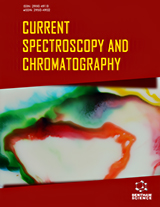Abstract
The determination of post-translational modifications is one of the main challenges in proteomics research. Mass spectrometry is a powerful tool for the structural characterization of proteins and different mass spectrometric techniques for the analysis of post-translational modifications of individual proteins or protein populations have been developed. This review describes the most recent advances in mass spectrometry-based approaches for the detection and determination of post-translational modifications, with an emphasis on glycosylation and phosphorylation.
Keywords: Mass spectrometry, Proteomics, Glycomics, Glycosylation, Phosphorylation, Glycoproteomics, Structural analysis
Current Analytical Chemistry
Title: Analysis of Glycosylation and Other Post-Translational Modifications by Mass Spectrometry
Volume: 5 Issue: 2
Author(s): Willy Morelle
Affiliation:
Keywords: Mass spectrometry, Proteomics, Glycomics, Glycosylation, Phosphorylation, Glycoproteomics, Structural analysis
Abstract: The determination of post-translational modifications is one of the main challenges in proteomics research. Mass spectrometry is a powerful tool for the structural characterization of proteins and different mass spectrometric techniques for the analysis of post-translational modifications of individual proteins or protein populations have been developed. This review describes the most recent advances in mass spectrometry-based approaches for the detection and determination of post-translational modifications, with an emphasis on glycosylation and phosphorylation.
Export Options
About this article
Cite this article as:
Morelle Willy, Analysis of Glycosylation and Other Post-Translational Modifications by Mass Spectrometry, Current Analytical Chemistry 2009; 5 (2) . https://dx.doi.org/10.2174/157341109787846153
| DOI https://dx.doi.org/10.2174/157341109787846153 |
Print ISSN 1573-4110 |
| Publisher Name Bentham Science Publisher |
Online ISSN 1875-6727 |
 7
7
- Author Guidelines
- Graphical Abstracts
- Fabricating and Stating False Information
- Research Misconduct
- Post Publication Discussions and Corrections
- Publishing Ethics and Rectitude
- Increase Visibility of Your Article
- Archiving Policies
- Peer Review Workflow
- Order Your Article Before Print
- Promote Your Article
- Manuscript Transfer Facility
- Editorial Policies
- Allegations from Whistleblowers
- Announcements
Related Articles
-
Strategic siRNA Screening Approaches to Target Cancer at the Cancer Research UK Beatson Institute
Combinatorial Chemistry & High Throughput Screening Recent Trends in Targeted Anticancer Prodrug and Conjugate Design
Current Medicinal Chemistry MicroRNA as Regulators of Cancer Stem Cells and Chemoresistance in Colorectal Cancer
Current Cancer Drug Targets FoxQ1 is a Novel Molecular Target for Pancreatic Cancer and is Associated with Poor Prognosis
Current Molecular Medicine Gene Therapy in In Vivo Isolated Perfusion Models
Current Gene Therapy Natural Products as Anti-Cancerous Therapeutic Molecules Targeted towards Topoisomerases
Current Protein & Peptide Science The Pattern of Non-AIDS-defining Cancers in the HIV Population: Epidemiology, Risk Factors and Prognosis. A Review
Current HIV Research Neutrophil MiRNA-128-3p is Decreased During Active Phase of Granulomatosis with Polyangiitis
Current Genomics Nanocrystal Technology in the Delivery of Poorly Soluble Drugs: An Overview
Current Drug Delivery The Role of Antihistamine Drugs in Allergic Disorders
Current Medicinal Chemistry - Anti-Inflammatory & Anti-Allergy Agents The Use of Temozolomide for the Treatment of Malignant Tumors: Clinical Evidence and Molecular Mechanisms of Action
Recent Patents on Anti-Cancer Drug Discovery Novel 3-(1-acetyl-5-(substituted-phenyl)-4,5-dihydro-1H-pyrazol-3-yl)-7-fluoro-2H-chromen-2-one Derivatives: Synthesis and Anticancer Activity
Letters in Drug Design & Discovery Bladder Cancer Stem Cells
Current Stem Cell Research & Therapy Tea and Health: Studies in Humans
Current Pharmaceutical Design MicroRNAs (miRNAs) as Biomarker(s) for Prognosis and Diagnosis of Gastrointestinal (GI) Cancers
Current Pharmaceutical Design Current and Emerging Strategies in Bladder Cancer
Anti-Cancer Agents in Medicinal Chemistry Developing FGFR4 Inhibitors As Potential Anti-Cancer Agents Via In Silico Design, Supported by In Vitro and Cell-Based Testing
Current Medicinal Chemistry Computational Approaches for Predicting Causal Missense Mutations in Cancer Genome Projects
Current Bioinformatics Interferon-Beta Therapy Monitoring in Multiple Sclerosis Patients
Endocrine, Metabolic & Immune Disorders - Drug Targets Recent Advances on Dark and Light-Activated Cytotoxity of Imidazole- Containing Ruthenium Complexes
Mini-Reviews in Medicinal Chemistry


























